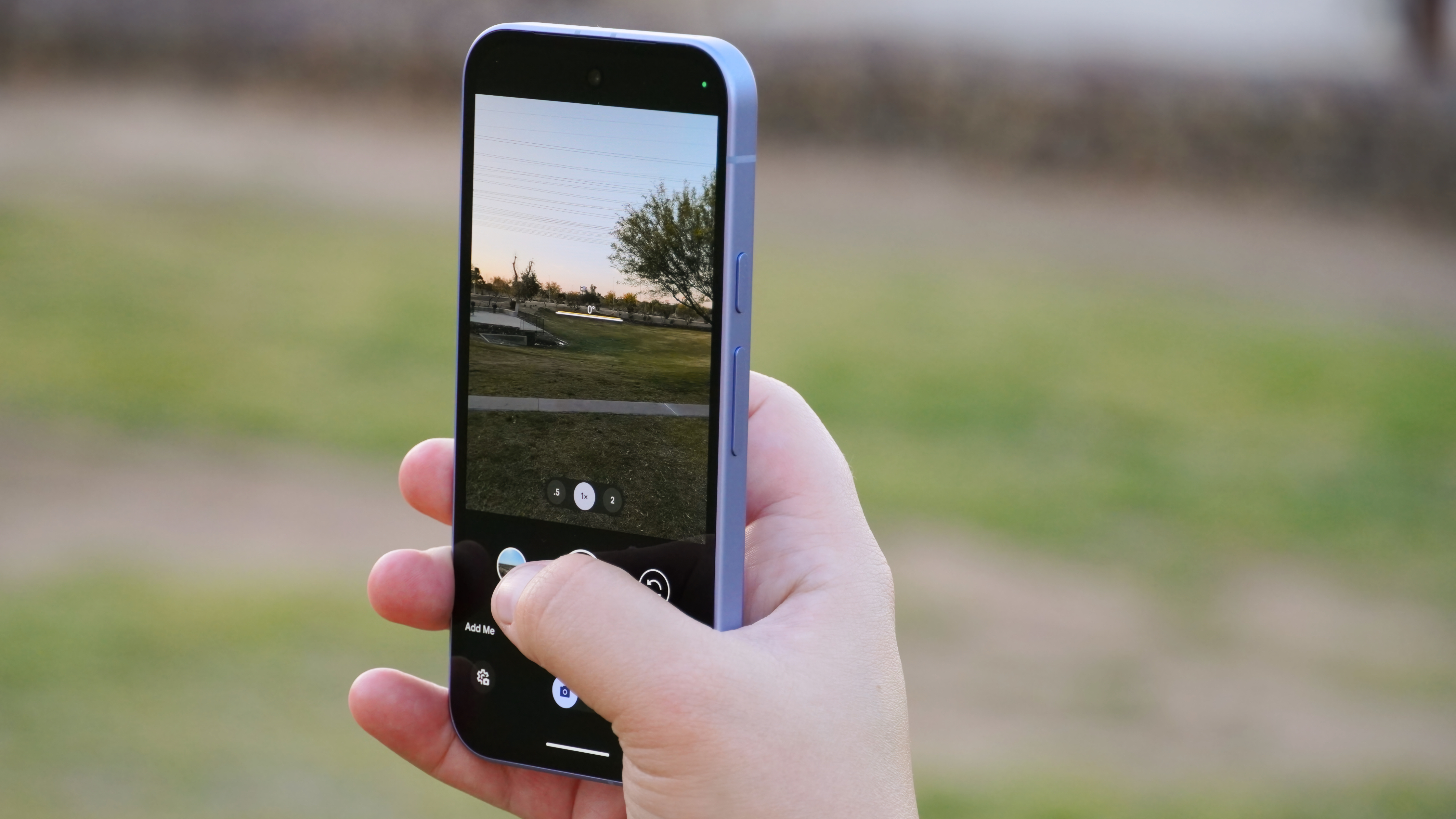Pixel 4 vs. iPhone 11: Which should you buy?
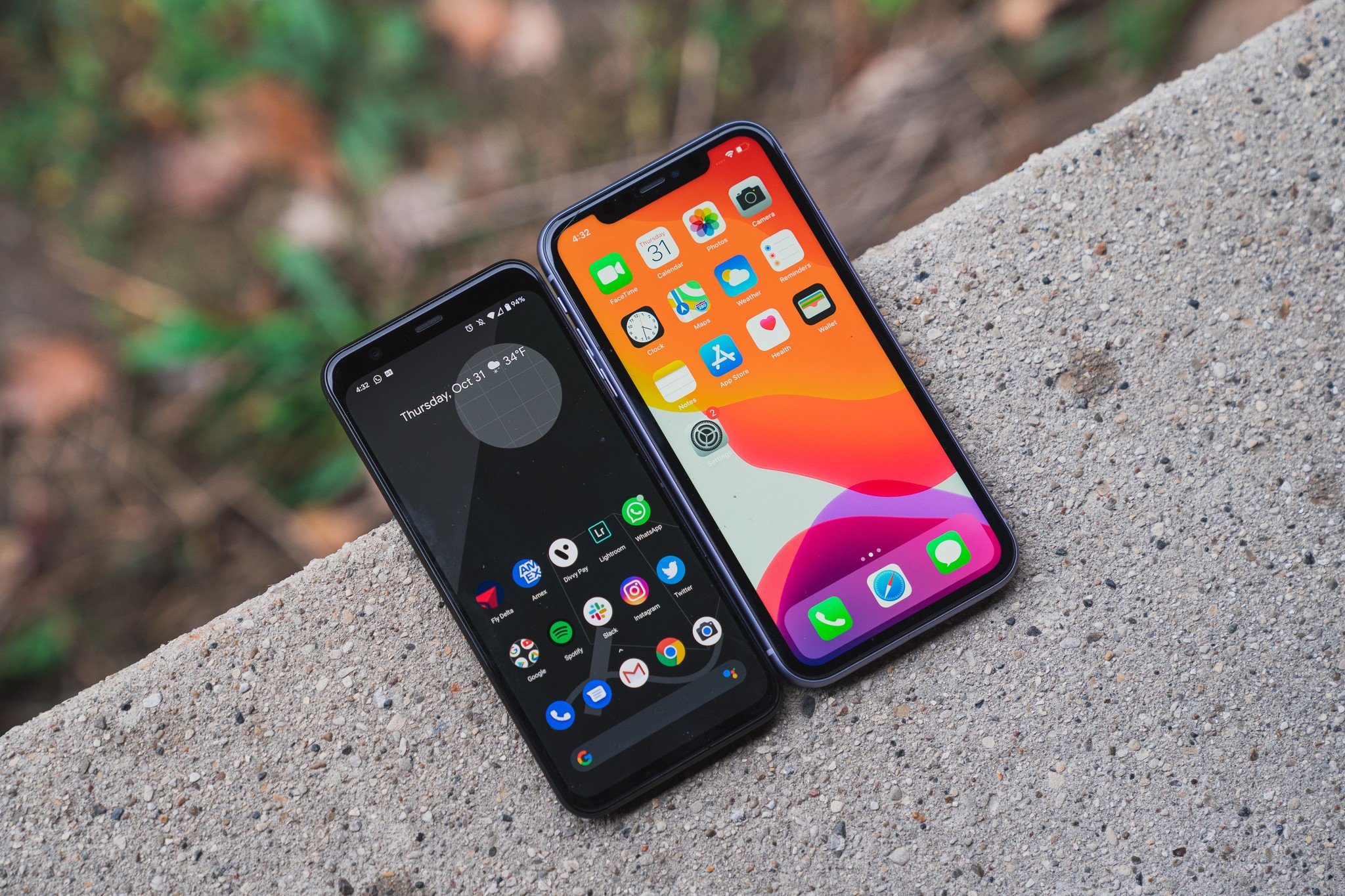
Get the latest news from Android Central, your trusted companion in the world of Android
You are now subscribed
Your newsletter sign-up was successful
Pixel 4
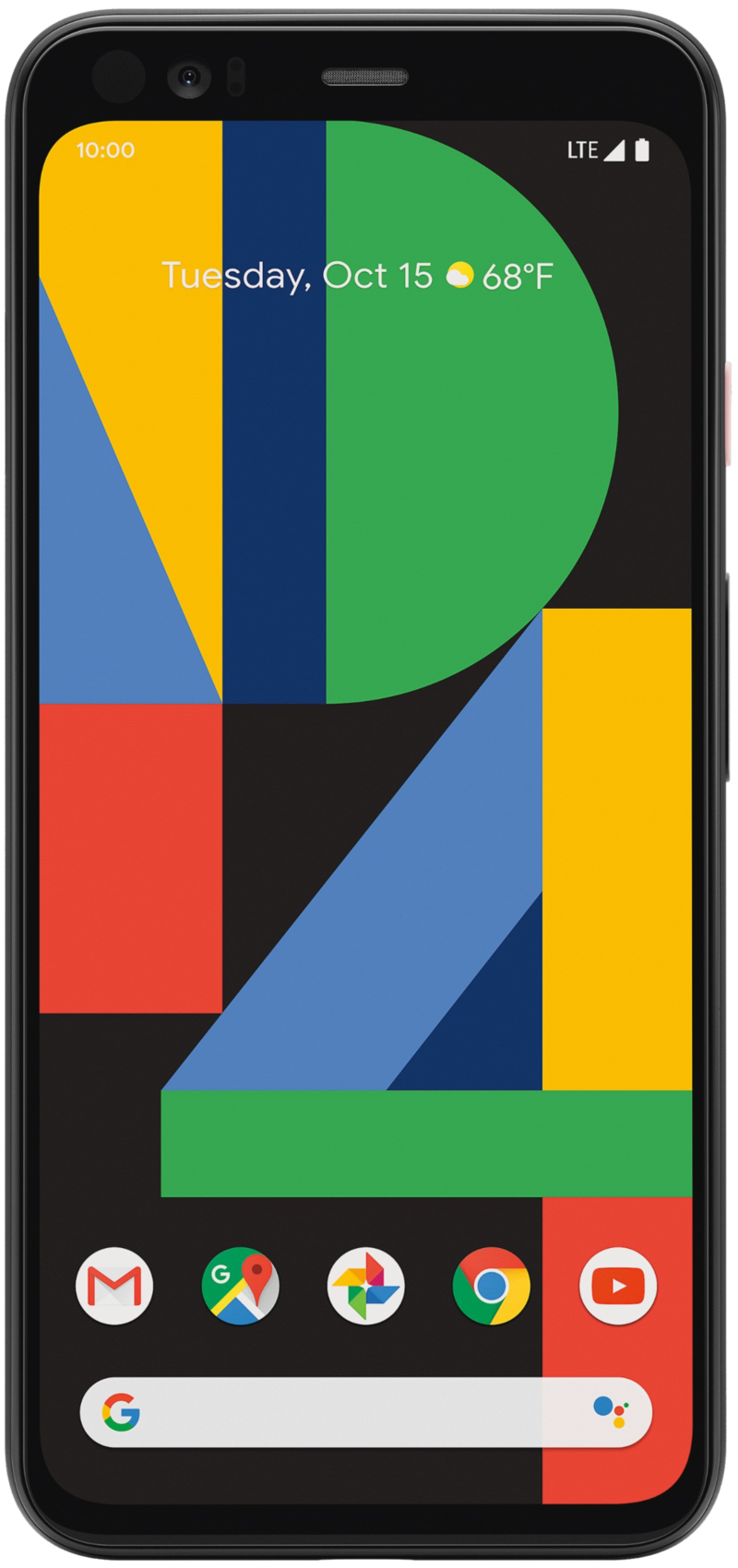
The Pixel 4 is Google's model for what Android should be: fast, fluid, and with great imaging. Its cameras take fantastic photos in any lighting conditions, and with astrophotography mode you can even capture the stars. However, battery life and pricing don't do the phone any favors.
Pixel 4
Pure Google
iPhone 11
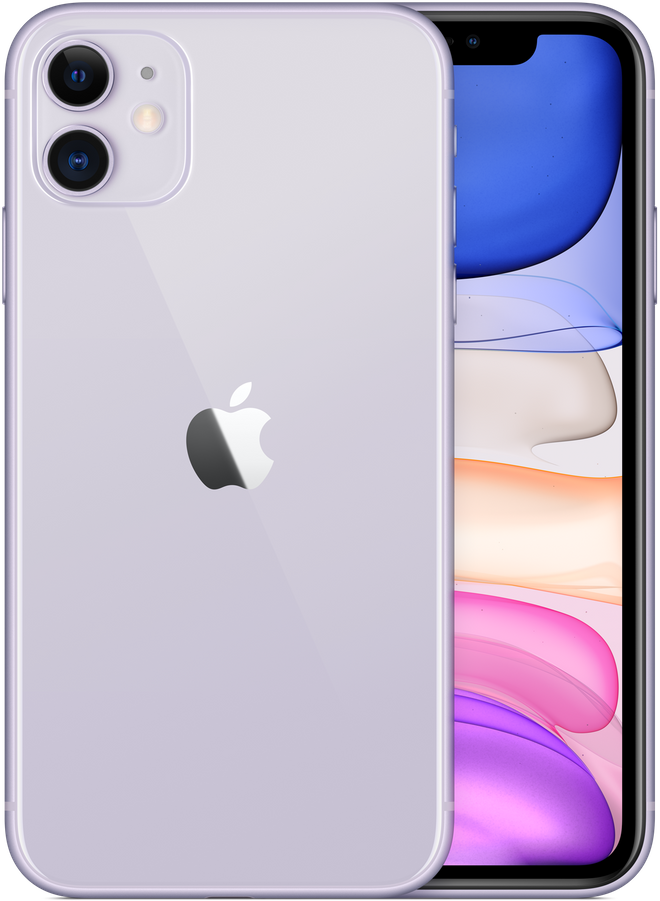
The iPhone 11 packs Apple's most powerful processor and two fantastic cameras into its most affordable phone of the year. It's a bit on the large side, but its ultra-wide lens is more useful than a telephoto sensor, and it shoots great-looking 4K60 video.
iPhone 11
Powerful and affordable
There are seemingly endless options for phones from different manufacturers these days, but if you're after the best possible software experience, why not buy directly from the maker of the operating system? Google and Apple both have fantastic offerings this year, but while they look similar in hardware, there's a lot that's different between the Pixel 4 and iPhone 11. Assuming you're relatively platform agnostic, which should you buy?
Clean software and night vision cameras
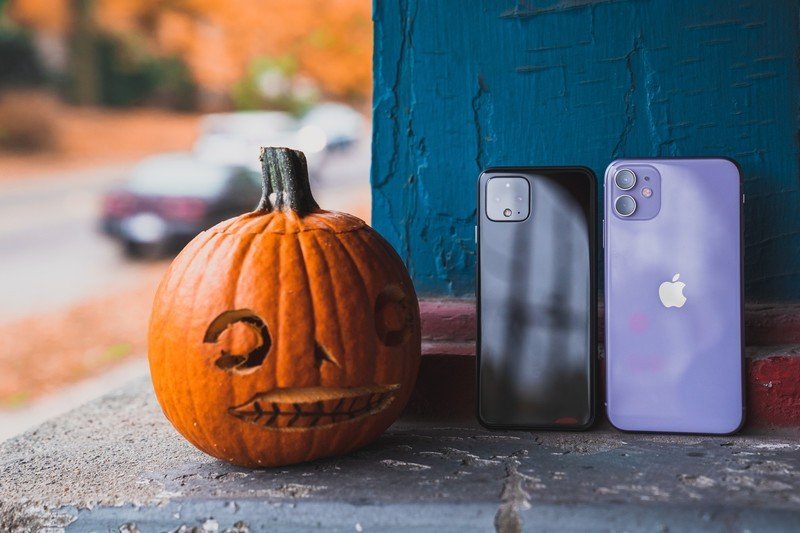
Physically, it's no stretch to say that the Pixel 4 and iPhone 11 look similar, at least from the back. Both phones feature a glass and metal construction with square housings for their dual camera modules and matte-finish side rails for extra grip. While the iPhone 11 is only available with a slick glossy backing, only the black Pixel 4 is glossy, with the white and orange models featuring frosted glass instead. Build quality on each phone is outstanding, and both feature wireless charging and IP68 water and dust resistance.
Around the front, the differences are more apparent. The iPhone 11 has the same wide display notch up top that Apple's been using since the iPhone X, housing the necessary sensors for its Face ID authentication, while the PIxel 4 sticks with a more traditional "forehead" bezel above its display.
Both phones are incredibly well-built, but the Pixel 4's sharper, faster 90Hz display is a nice perk.
New this year for the Pixel is a combination of radar and infrared sensors that enable its own Face Unlock system in lieu of a fingerprint sensor, which works incredibly well and is even faster than Face ID, but with far less support. We're still waiting on Android developers to adopt Google's new biometrics API that enables Face Unlock for signing into apps.
You'll get a larger display with the iPhone 11, a 6.1-inch LCD panel versus the Pixel 4's 5.7-inch P-OLED, but the latter is both higher resolution and faster with a variable refresh rate at up to 90Hz. This plays a big role in making the PIxel 4 feel speedier when scrolling around in apps, but both phones are incredibly responsive.
Get the latest news from Android Central, your trusted companion in the world of Android

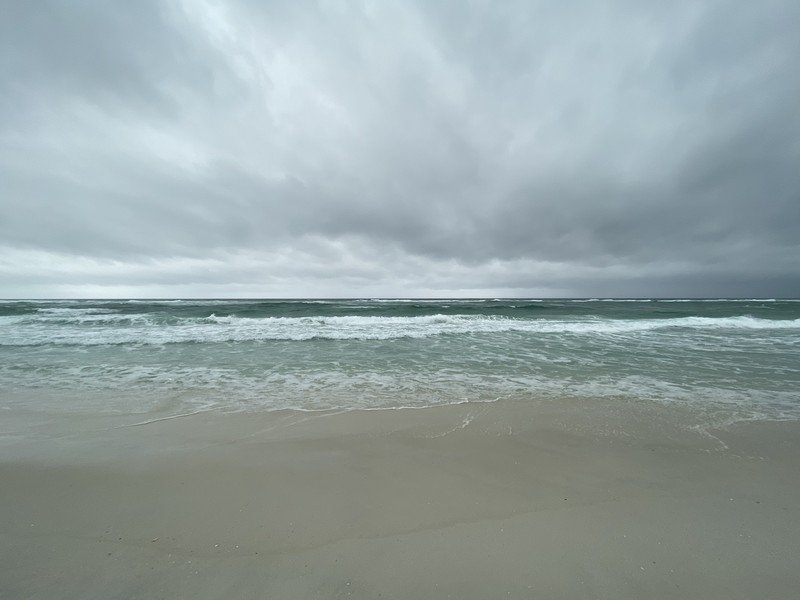






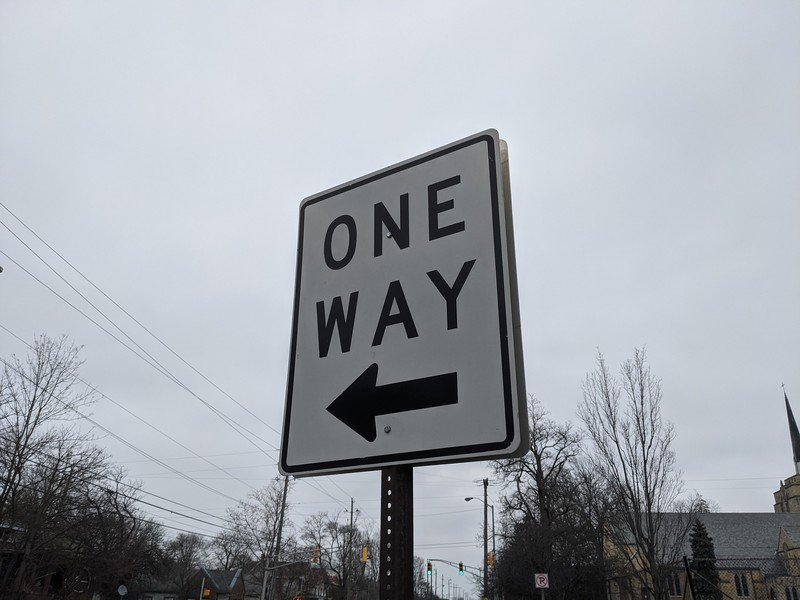
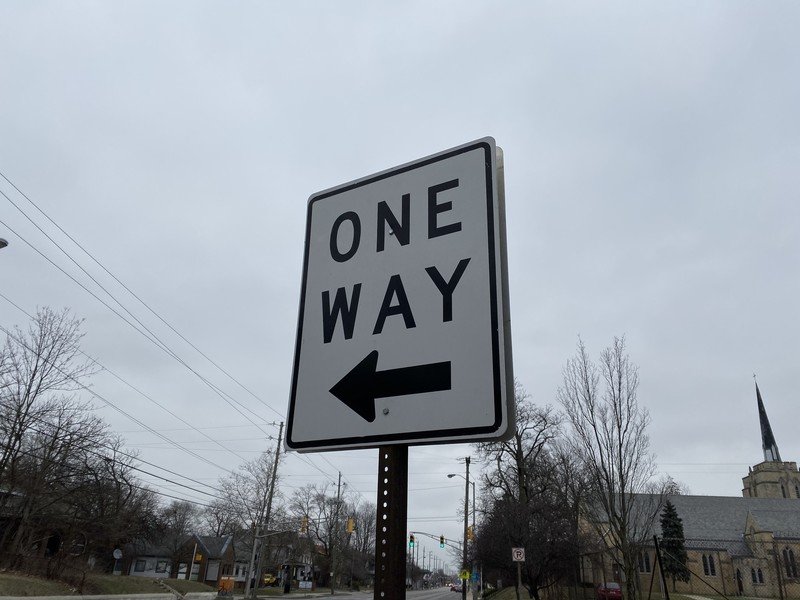
| Category | Pixel 4 | iPhone 11 |
|---|---|---|
| Operating System | Android 10 | iOS 13 |
| Display | 5.7 inches, 19:9 aspect ratio, 2280 x 1080 (444 ppi) resolution, P-OLED | 6.1 inches, 19.5:9 aspect ratio, 1792x828 (326 ppi) resolution, LCD |
| Processor | Snapdragon 855, 8-core, 2.84GHz | A13 Bionic, 6-core, 2.65GHz |
| Graphics | Adreno 640 | Apple GPU |
| Memory | 6GB | 4GB |
| Storage | 64/128GB | 64/128/256GB |
| Expandable Storage | No | No |
| Rear Camera | 12.2MP, ƒ/1.7, 28mm + 16MP, ƒ/2.4, 45mm | 12MP, ƒ/1.8, 26mm + 12MP, ƒ/2.4, 13mm |
| Front Camera | 8MP, ƒ/2.0, 22mm | 12MP, ƒ/2.2, 23mm |
| Security | Face Unlock | Face ID |
| Ports | USB-C | Lightning |
| Audio | Earpiece + loudspeaker | Earpiece + loudspeaker |
| Battery | 2800mAh | 3110mAh |
| Water Resistance | IP68 | IP68 |
| Dimensions | 147.1 x 68.8 x 8.2mm | 150.9 x 75.7 x 8.3mm |
| Weight | 162g | 194g |
| Colors | Just Black, Clearly White, Oh So Orange | White, Black, Green, Yellow, Purple, Red |
On the software side, both Android 10 and iOS 13 have a lot of pros and cons, but they're undoubtedly the best iterations of their respective platforms. In Android 10, you get a system-wide dark mode along with, among other things, useful features like live transcription of any audio (great for loud environments or for those who are hard of hearing), call screening to field potential spam calls, and completely revamped privacy and security measures.
In iOS 13, you won't get as much customization as on Android, but in exchange you're getting the keys to Apple's diverse ecosystem; you'll get iMessage for easily communicating with other iPhone owners, Airdrop for wirelessly transferring files to other Apple devices (including Mac computers), and a wider variety of high-quality apps through the App Store. You also gain access to the unmatched Apple Watch, which could be almost as big of a selling point as the phone itself if you're a smartwatch fan.
Cameras are a huge toss-up here, since the Pixel 4 and iPhone 11 both feature some of the best cameras of any phones on the market. The main sensors are pretty evenly matched, but the secondary lenses take completely different approaches; the Pixel 4 has a 2X telephoto lens, while the iPhone 11 opts for an ultra-wide. If you ask me, the latter is much more useful, especially since telephoto can be closely replicated with digital zoom and computational data (Google even uses this approach to achieve cleaner zoomed images up to 8X), but that's a matter of personal preference.
Astrophotography on the Pixel 4 pulls off miraculous star photos.
Both phones also feature incredibly impressive low light shooting modes that let you capture photos at night, and they look brighter than even your eyes can see. The Pixel's Night Sight has been the largely undisputed champion of low light photography since the feature's unveiling with last year's Pixel 3, but the iPhone 11 gives it some very close competition, and edges out in some instances. Check out our deep dive comparison to see for yourself.
Where the Pixel really wins out is in its new astrophotography mode, which uses a combination of Night Sight, HDR+, and what Google calls Semantic Segmentation to pull off shockingly detailed and clean images of the night sky. The iPhone 11 has an astrophotography mode of its own, but it's not nearly as complex, essentially boiling down to a simple long exposure.
The iPhone 11 is cheaper, shoots better video, and lasts much longer.
Though the iPhone does now benefit from Apple's Deep Fusion technology, which, like Semantic Segmentation, uses computational data to identify different objects within the frame of your shot and process them individually, sharpening fine details like facial hair without affecting the rest of the image. It's also able to shoot in 4K at up to 60 frames per second (FPS) on both of its rear cameras and even the front camera; meanwhile, the Pixel 4 maxes out at 4K30, with the front camera reducing down to 1080p30.


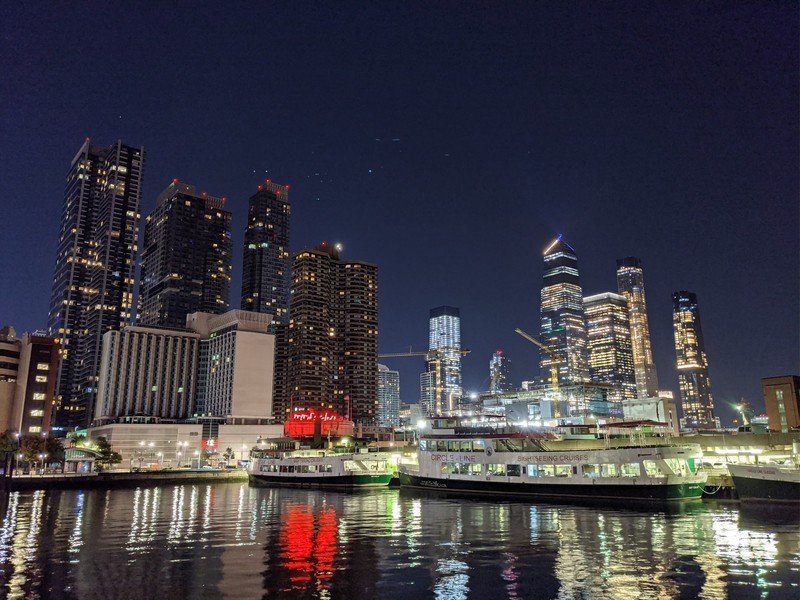





Some simpler details to wrap things up: While both phones start at a measly 64GB, the Pixel 4 can only be upgraded to 128GB, while the iPhone 11 can go a step up to 256GB — all while starting off at $100 less than the Pixel. The iPhone 11 also has dramatically better battery life. Whether you want to credit the 11% larger battery, iOS's better power management, or the lower resolution display, the iPhone 11 can last up to two days on a single charge. The Pixel 4, however, struggles to make it through a single day with even light usage.
Those factors alone may be enough to sway you into buying the iPhone, but of course there are plenty of other variables to consider. You may prefer the Pixel 4's imaging, particularly its astrophotography capabilities, or simply prefer Android over iOS — or maybe you just like having a smaller phone.
For most people, though, the iPhone 11 is a better deal if you're looking purely from a value perspective and don't have any reservations against iOS. Video recording is much better on the iPhone, and unless you value the Pixel 4's astrophotography, the iPhone's ultra-wide camera is largely more useful than the Pixel's telephoto and you'll be just as happy with the primary sensor.

Android 10 and cameras that can see the stars.
The Pixel 4 is Google's model for what Android should be: fast, fluid, and with great imaging. Its cameras take fantastic photos in any lighting conditions, and with astrophotography mode you can even capture the stars — but battery life and pricing don't do the phone any favors.

Apple's cheapest phone is incredibly well-versed.
The iPhone 11 packs Apple's most powerful processor and two fantastic cameras into its most affordable phone of the year. It's a bit on the large side, but its ultra-wide lens is more useful than a telephoto sensor, and it shoots great-looking 4K60 video.
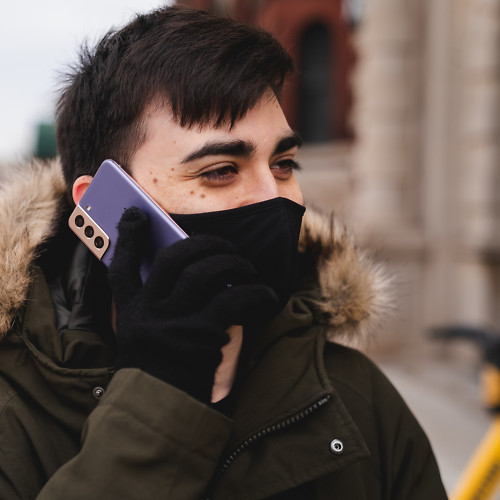
Hayato was a product reviewer and video editor for Android Central.

